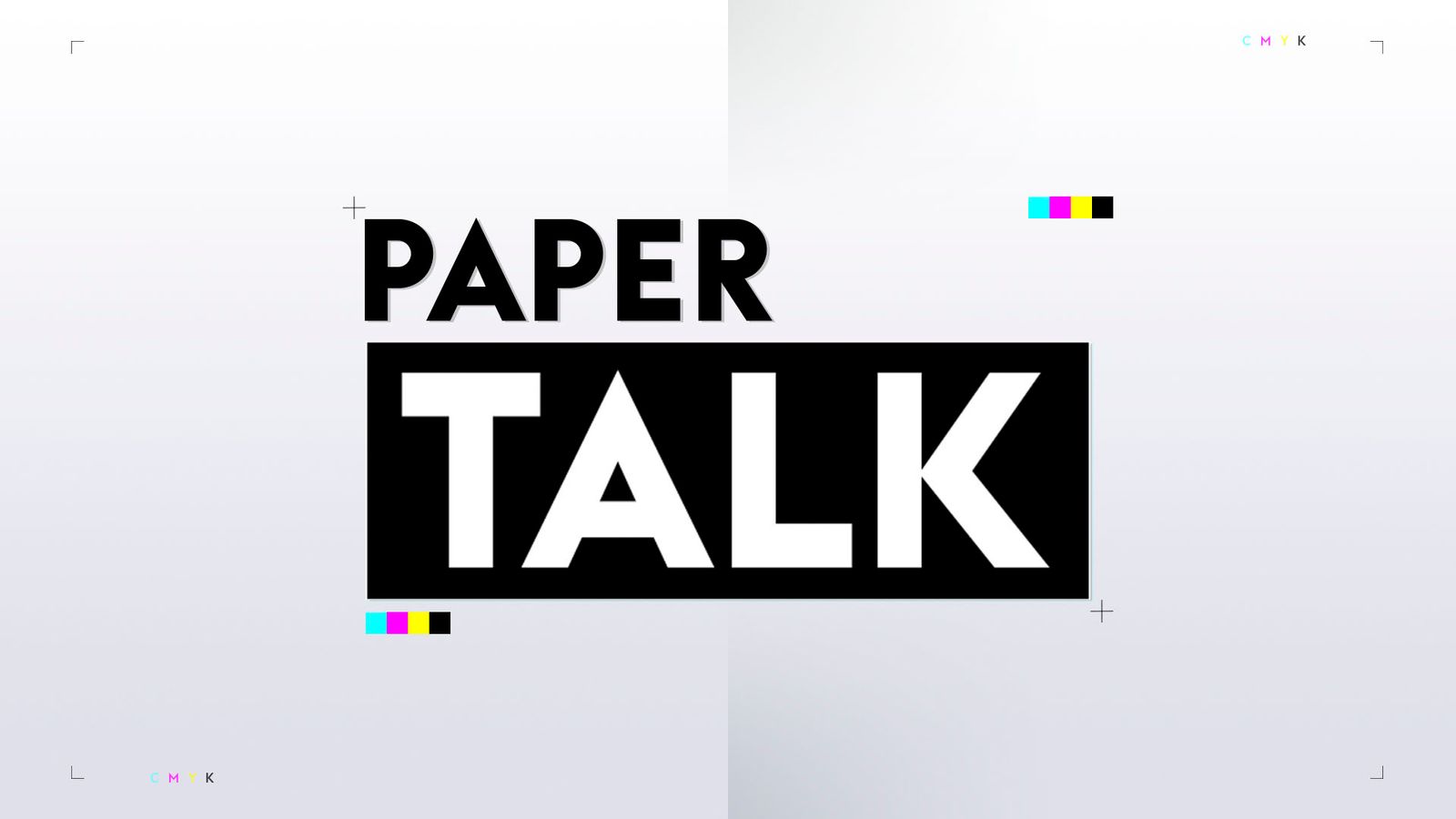World
A-level top grades up on last year but educational inequality widens
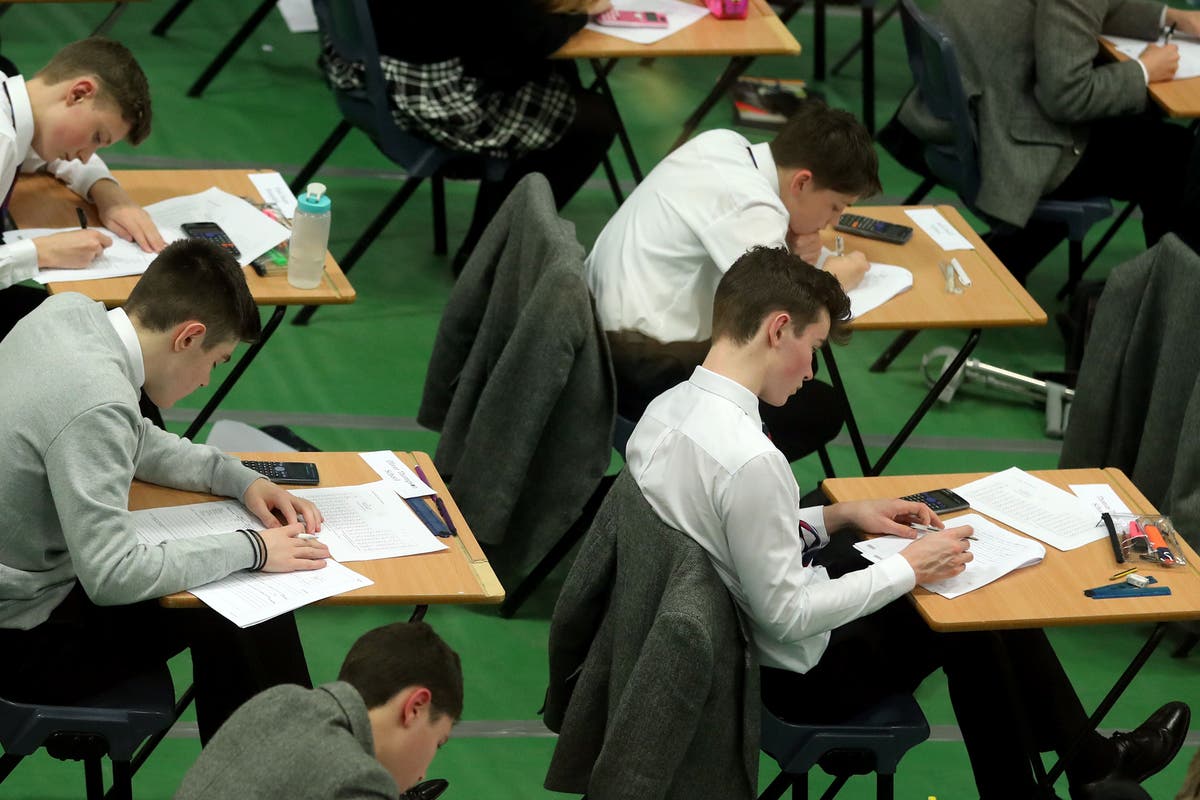
The proportion of A-level entries awarded top grades is up on last year, national figures show, but the inequality in results between independent schools and comprehensives in England has widened.
Hundreds of thousands of students received their A-level results on Thursday morning, with more than a quarter (27.8 per cent) of UK entries awarded an A or A* grade. This is an increase of 0.6 percentage points on last year, when 27.2 per cent achieved the top grades.
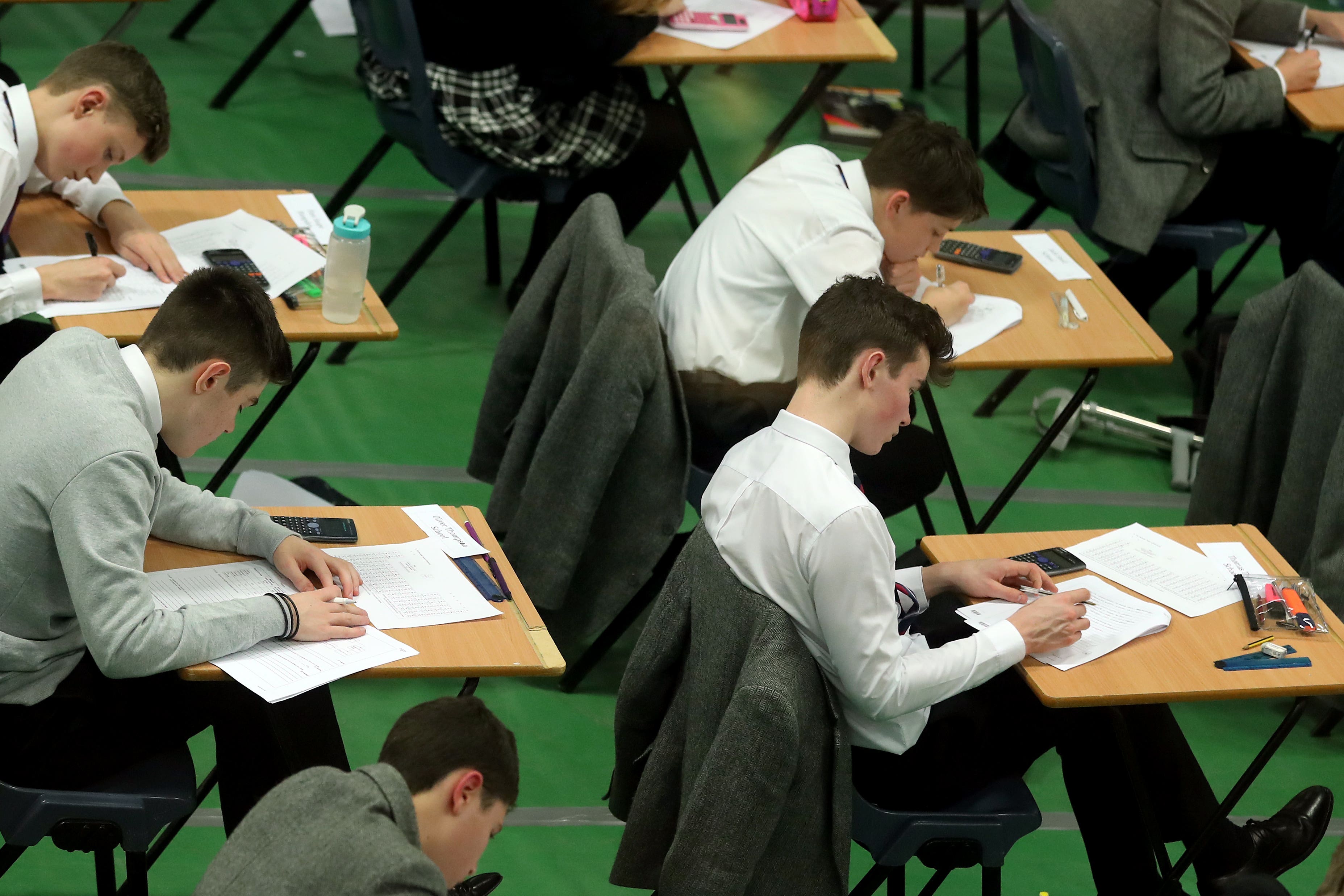
Excluding 2020 to 2022, when students saw inflated grades during the pandemic, this represents the highest proportion of A* grades awarded since they were first handed out in 2010. But the overall pass rate – the proportion of entries graded A* to E – has fallen to 97.2 per cent this year, which is lower than last year (97.3 per cent) and the pre-pandemic year of 2019 (97.6 per cent).
The latest statistics also show that the attainment gap between independent schools and comprehensives in England has increased compared with last year. The attainment gap measures the educational outcomes of children from different backgrounds and schools.
Some 49.4 per cent of independent school candidates scored grade A or above in all subjects, compared with 22.3 per cent of those at comprehensive schools – a gap of 27.1 percentage points, the latest Ofqual figures show.
Last year, the gap was 25.4 percentage points, while in 2019 it was 24.8 percentage points.
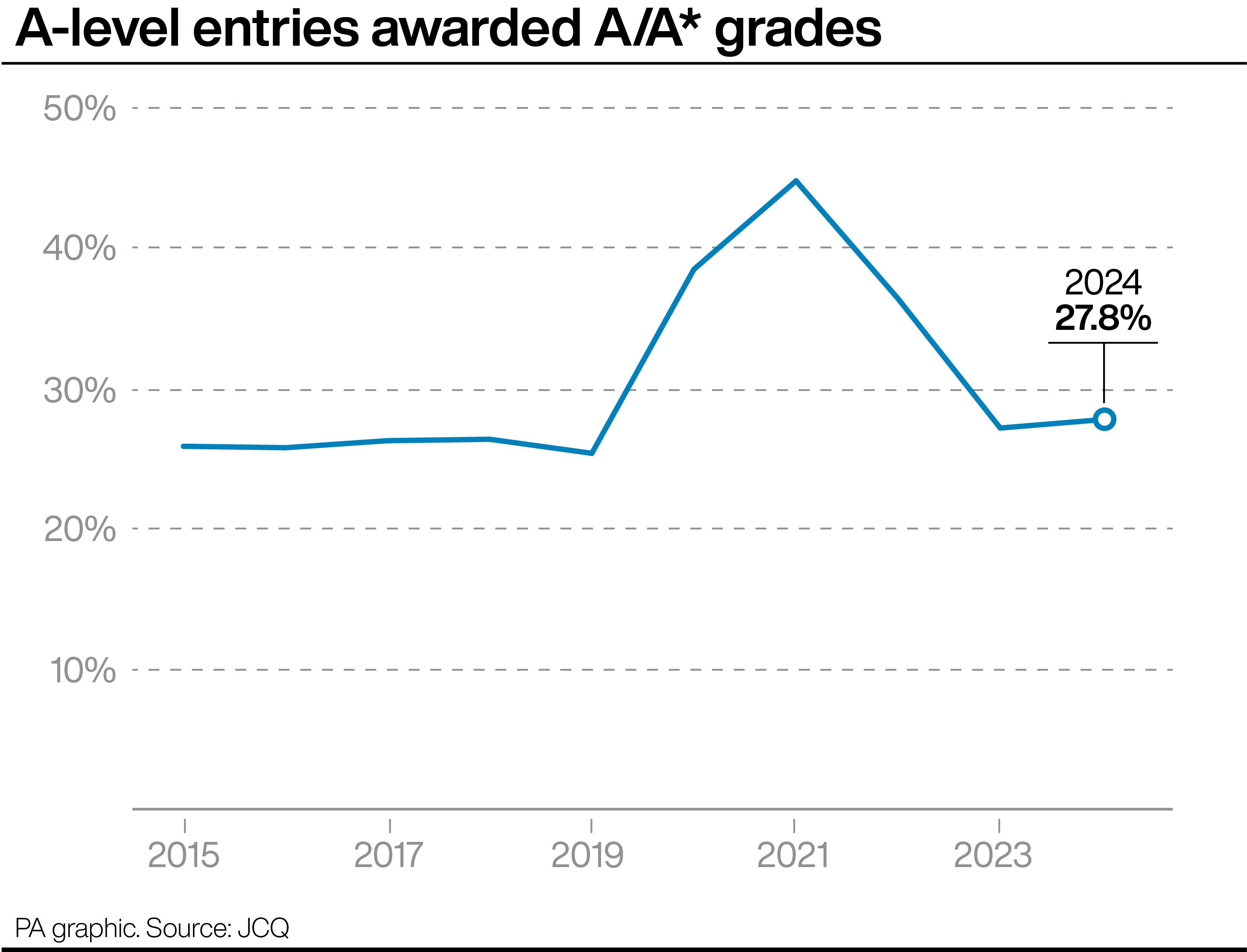
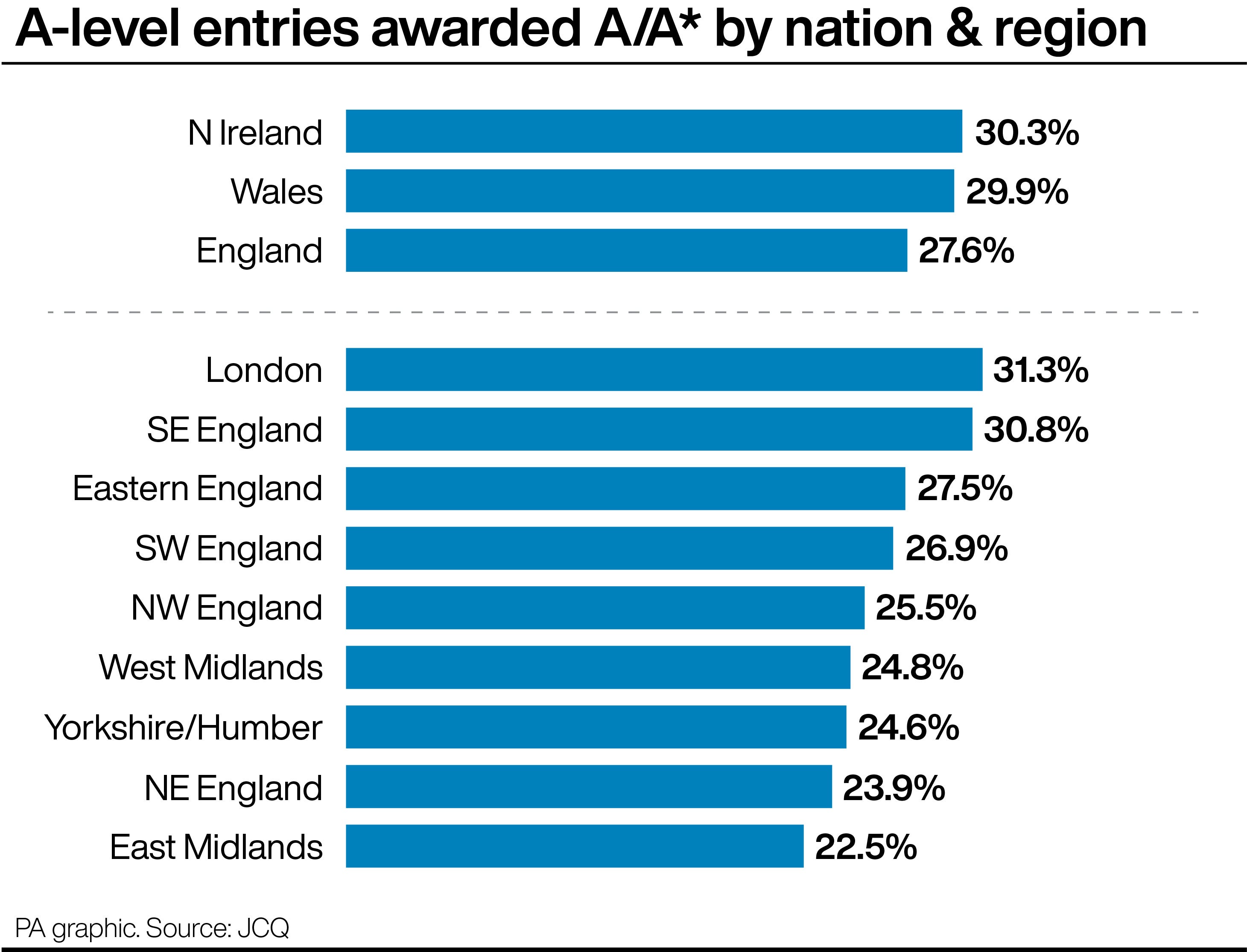
Education secretary Bridget Phillipson has promised to “break down these barriers to opportunity” and “improve children’s life chances regardless of their background”.
Congratulating those who received results this morning, she said students across the country should be “be incredibly proud of what they have achieved” in the face of “huge disruption of recent years” as well as “inequality that goes hand in hand with young people’s backgrounds”.
Asked what has caused widening inequality, Iain Mansfield, head of education at Policy Exchange and a former adviser in the Department for Education, said school closures in the pandemic were in part to blame – pointing to worsening mental health and widespread absence rates that came as a result.
He accused the previous government of having “thrown social mobility under a bus to protect a group of people who were not at risk”.
Mr Mansfield explained: “Before the pandemic, you saw the attainment gap get steadily narrower for almost a decade, largely as a result of school reforms. But during the pandemic, the poorest were hit worst.
“Both political parties were to blame here: the Conservatives should never have closed schools for as long as they did and Labour were calling for schools to be closed for longer. So there is a gross mutual culpability for that.”
Mr Mansfield said ministers should aim to tackle the “culture of non-attendance” seen in schools since Covid-19, as well as aiming to increase the number of teachers in the classroom.
Labour has pledged to end the VAT exemption for private schools to raise an estimated £1.6bn, which the party said would be used to hire 6,500 teachers in the state sector. Ms Phillipson said the plan is aimed at “driving high standards in our state schools”.
But Mr Mansfield described Labour’s plan to tax private schools as a “red herring”, warning that the effect may only be marginal as a result of parents taking their children out of the private sector.
Instead, he said schools should focus on restructuring incentives in the teaching industry to encourage staff retention.
“All the evidence shows that one of the biggest things that matters for a child is not money, it’s about having a good teacher in the classroom – and it would help if we can do more to get more teachers into the profession and crucially stop them leaving”, he said.
Joe Seddon, CEO of Zero Gravity, social mobility tech platform helping low-opportunity students into top universities, called for a “serious overhaul” in the university admissions system, saying it is “stacked against students from low-opportunity backgrounds”.
He said: “When it comes to university admissions, students from underperforming state schools have their grades compared to those from elite schools without any context about the challenges they’ve faced. How can universities judge potential if they have no sense if students achieved the same outcome from different starting points?”
Meanwhile, Erica Holt-White, a senior research and policy officer at the Sutton Trust, acknowledged that putting more teachers into the state sector would help to narrow the gap, but also called for the government to put more funding into tutoring programmes.
An arm of the National Tutoring Programme (NTP) set up to help poorer pupils with pandemic lost learning was axed this year due to low demand.
She said that schemes like the NTP can “really support students in state schools”, adding: “I think there’s a wide range of things that need to be done, and any boost to funding is the right way forward.
“Boosting teacher recruitment is great, but again, looking at things like tutoring is another way to make a good investment in education.”
The total number of students accepted on to UK degree courses has risen by 3 per cent on the same point last year, with 425,680 taking up places so far, initial figres from Ucas show.
Ucas said 82 per cent of all applicants have gained a place at their first choice university or college, which is up from 79 per cent last year.

But the education secretary said there are “plenty of opportunities” for those students who fall short on results day.
She told Sky News: “For those young people who get what they need and move on to their destination of choice, that’s brilliant.
“For those who perhaps fall slightly short, there are lots of options out there. There are lots of people that can be there to provide advice and support, whether that’s the school or college, Ucas through clearing, or the National Career Service.”




